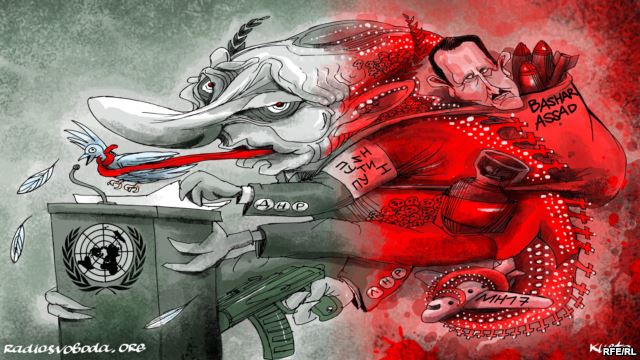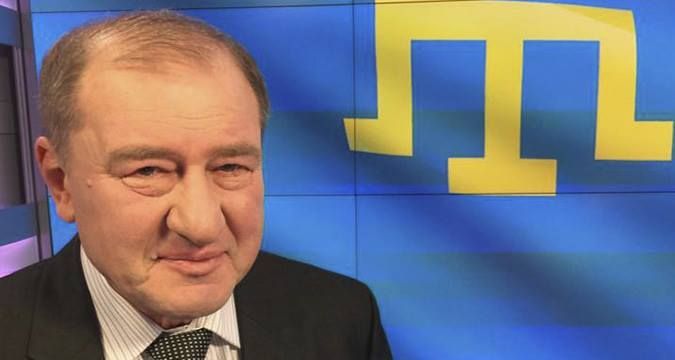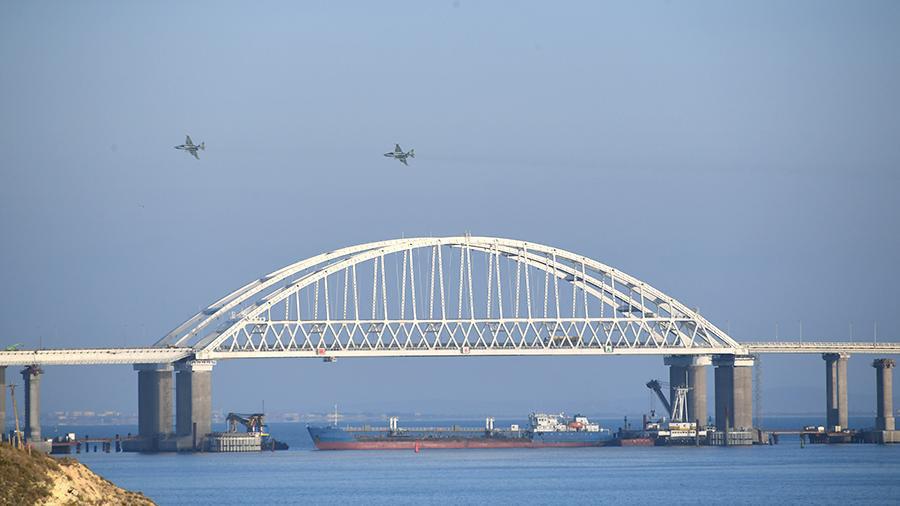The war in Syria is the Kremlin’s last hope to achieve recognition, albeit informal, of Russian-occupied Crimea and partial easing of sanctions without withdrawing Russian troops from the Donbas region of Ukraine.
On September 28, Vladimir Putin will mount the rostrum of the UN General Assembly and urge the West to start a joint fight against terrorism in the Middle East. Even if he does not focus on Ukraine, the meaning of his message is clear: “Let's forget what happened in Crimea and the Donbas and join forces to fight ISIS”.
The Russian tactical plan for Syria is seemingly logical. The Kremlin wants to stop the ongoing disintegration of the Syrian state, remove Bashar al-Assad as president or at least urge him to retire calmly from the political scene, and ensure Russian influence in the region. Russian authorities believe that by providing technology and help from the Russian Special Forces to the Syrian state they will be able to push ISIS into Iraq and let the United States deal with the terrorists on their own. The Kremlin would like to create a certain scenario for that region, namely that Washington “has let the genie out of the bottle” and can no longer cope with the consequences. Vladimir Putin is trying to demonstrate to the “vile” West, which has not welcomed Russia into the bosom of the family, that the United States is not the only country willing to assume the role of global policeman, ready to bring order to the world.
On the quiet, Russia will try to negotiate preferential treatment for Crimea and the occupied regions, without withdrawing its troops. Putin needs to prolong and postpone the implementation of the Minsk Agreements. The “DNR” puppets have already voiced such proposals.
Putin’s “cunning plan” looks good on paper. In reality, it is somewhat flawed. The main argument has to do with the war against ISIS. We know that this group is fighting against the Assad regime and the opposition. If the Kremlin decides to wage a real war against the Islamists in Syria, it may indirectly help other oppositionists. They, in turn, can destroy the government forces without fearing that ISIS will attack them from the rear. If Moscow starts military operations against everyone, it would be a direct military challenge to the United States. After all, back in August, Barack Obama authorized the use of US aircraft to protect the moderate Syrian opposition. Russian military officials do not fully understand against whom and how they will be fighting in Syria. That is why John Kerry, the US Secretary of State, recently stated that he does not see a military solution to the Syrian war.
It is useless to search for a deeper meaning in the Kremlin’s plans. After the Russian authorities officially called Ukrainian Prime Minister Arseniy Yatsenyuk a “mujahidin”, even the most naive “vatnik” should understand that basic intelligence is missing somewhere.
The Kremlin is desperately trying to break out of international isolation and shed its international pariah status.
The entire Russian propaganda machine is currently working towards that goal: the lull in the Donbas war, the “fake coup” in the “DNR”, the pathetic and meaningless state visits to Crimea, the attempts of Russian diplomacy to portray Russia as an important player in the war against ISIS, the behind-the-scenes agreements on Bashar al-Assad’s resignation, etc.
We have noted many times that the Kremlin has no coherent foreign policy strategy. Putin and his team operate tactically, according to the situation at hand. The Kremlin basically wants to stop the expansion of sanctions and does not care to look after the losers in the Donbas. The Russian president is guided by “kid logic” - if you don’t make them bend, they will destroy you.
In the medium term, Moscow hopes that oil prices will bounce back, that the “people's republics” of the Donbas will be co-opted by Ukraine under Kremlin terms, and that “Krymnash” (our Crimea) will be formally recognized by the West. Then, having built up its military forces and gathered more funds, Putin will again start playing dirty in Ukraine. His constant ravings about “one brotherly nation” (Russians and Ukrainians) has to be understand as a complete denial of Ukraine’s right to independence and statehood.
The Ukrainian government and the members of parliament should have no illusions. The Moscow “Frankenstein” will not stop. It does not need a reason to interfere in Ukrainian affairs. Lavrov and Churkin will quickly come up with something or other.
In the meantime, the attention of Europeans is focused on the refugee problem. The German Chancellor Angela Merkel has stated that it is impossible to solve the Syrian problem without Moscow’s participation. These “discrepancies” in official statements made by the US and Germany should come as no surprise. The West has chosen to act against Putin’s Russia by installing a strategy of slow economic strangulation. The ultimate goal is to demoralize the Russian kleptocratic elite and persuade it to revise the policies of the regime.
A priori, Europe cannot forgive the Kremlin for militarily redrawing its borders, but it refuses to put too much pressure on Moscow.
Washington and Brussels are seriously worried about a sudden collapse of Putin’s vertical, which might lead to Russia turning into one big “DNR” fully armed with nuclear weapons.
The “Russian bear” has both feet trapped in Crimea and Donetsk, and now he’s sticking his paw into another hive of evil Syrian “bees”. Why should we interfere with his plans? Let him get stuck in another foreign conflict, wasting both resources and lives. In the eyes of the Russian public, “Krymnash” was legitimized by Putin’s third presidential term, but the Syrian gamble will put a damper on everything.
It is one thing to kill Ukrainians, thus protecting the local population from mythical right-wingers and banderites, but another to send Russian soldiers to a foreign country for who knows what reason. “Vatniks” are now puzzled why the “Russians” in the Donbas do not need more protection, but Bashar al-Assad does… Even TV “magicians” like Sergei Kurginian and Vladimir Solovyov cannot explain such a political volte-face.
So the Kremlin is loudly silent about sending troops to Syria, while the Russian Ministry of Defense continues to chant that “we’re only providing military equipment and specialists”.
Moscow is slowly but surely repeating the mistakes of the Soviet Union in the last years of its existence.
The Soviet invasion of Afghanistan was originally meant to protect important installations and the state borders of the Democratic Republic of Afghanistan. The Soviet authorities “suddenly” discovered that Afghanistan was not a monolithic state, but a country inhabited by warring tribes. The Soviet Union was gradually drawn into a war of attrition with various tribes and clans. It was a war for which the USSR was neither technically or morally prepared. Afghanistan became a shameful defeat for Moscow, foreshadowing the collapse of the Soviet Union.




